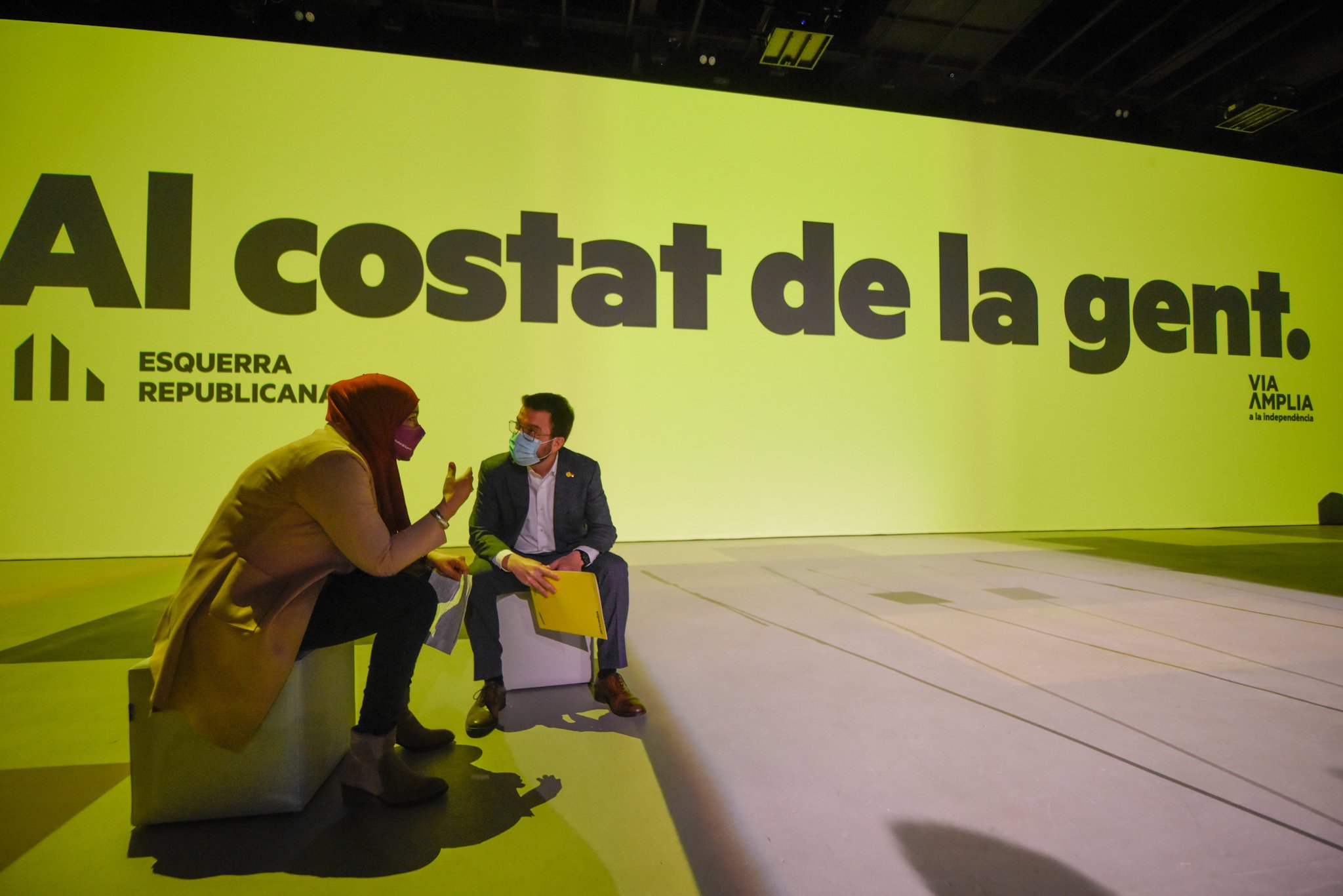In the build-up to the most uncertain Catalan elections in recent decades, there is only one certainty: that the result of the vote on 14th February will leave an extremely fragmented Parliament in which no single party will hold an absolute majority. Given the inevitability of this situation, the debate on post-election pacts gets louder as the election gets closer - and naturally, is centred on the parties who arithmetically may have more than one option. Every day of the campaign, the Catalan Republican Left (ERC) has insisted that it will not enter into an agreement with the Catalan Socialist Party (PSC). This Wednesday, ERC went a step further by stating that it will not make use of the external support of the PSC either. "Neither in the government, nor accepting their votes for the formation of the government," confirmed ERC's candidate Pere Aragonès.
Technically speaking, the only way that a candidate can avoid "accepting votes" in Parliament to be invested as new president is by the candidate not actually presenting themselves for that vote. Asked whether he will opt out of the investiture himself if his success depends on the PSC, Aragonès replied confidently that "there will be no dependence on the PSC." On the other hand, he gave a clear "yes" when asked whether he believes that PSC candidate Illa would be obliged to pull out of standing for president if the only viable equation depended on the deputies of far-right Vox.
The ERC candidate is not satisfied with the statement that Salvador Illa made during Tuesday night's election debate on TV3, responding that he would not make an agreement with Vox "actively, passively or periphrastically" and Aragonès demands more from him. "I would never go into an investiture if I had to depend on Vox," said the ERC list leader, asking Illa to match his statement. Linking what Pere Aragonès has said he will do, with the commitment he demands of his Socialist opponent, the conclusion is that if the current vice president was only able to be president through the collaboration - active or passive - of the PSC, he would not run for the investiture.
However, from the ERC party, they emphasize that, given the arithmetic of the polls, it is virtually impossible that there will not be an absolute majority from the sum of the three main pro-independence parties - ERC, Junts, the CUP - plus the Comuns and, if it wins any seats, the PDeCAT. These, then, are the parties with which ERC hopes to form a post-election alliance. In any case, Aragonès has also made it clear that "ERC is ready to govern alone."
Budget agreement as part of investiture vote
During last night's televised election debate on Catalonia's TV3, Aragonès proposed combining the negotiation for the formation of a government with an agreement for support on the Catalan government budget later on. Today he commented further that "the two agreements would have to be presented at the same time," he stressed, "because we don't want to have an unstable legislature," such as the current one, presided over by Quim Torra.
Outrage about Illa's antigen test
It emerged this morning that former health minister Illa was the only participant in the TV3 debate on Tuesday night who refused to undergo a Covid antigen test prior to entering the studio. Pere Aragonès asserted today that all the other candidates went into the debate "thinking that Illa had taken the test" like they had, and he described the attitude of the former minister as "irresponsible".
Illa claimed that "health protocols make PCR tests ill-advised in those conditions", and also pointed out that he had been interviewed at the TV3 studios on Tuesday morning and was not tested. "Why was it required in the afternoon, when it hadn't been in the morning?" he asked. An objection which was made by the former Spanish minister, but not by any of the other eight candidates, who were duly tested before they began the three hour debate.

